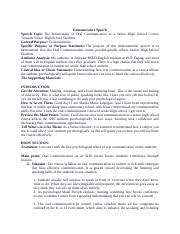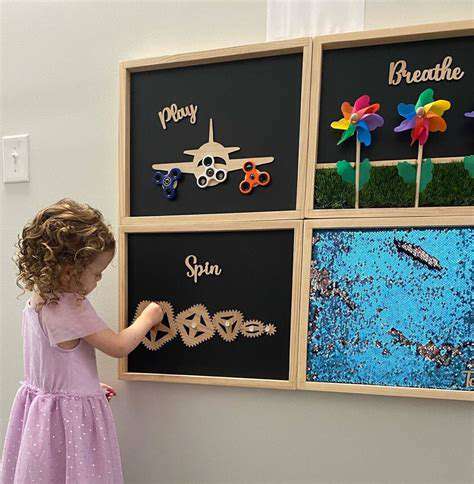Guide to Ethical Souvenir Shopping
Avoiding Exploitation and Cultural Appropriation
Understanding Cultural Appropriation
Cultural appropriation occurs when dominant groups adopt elements from marginalized cultures without understanding or respect. This differs from appreciation, which involves learning context and building equitable relationships. Sacred symbols become fashion statements, and ceremonial objects turn into decor—this commodification often harms the very cultures being celebrated.
Tourists frequently encounter this through stereotypical native costumes or simplified versions of sacred art. Before purchasing, research whether items hold spiritual significance or if their production involves exploited labor. Many communities welcome sharing their culture when done respectfully and beneficially.
Respecting Traditional Craftsmanship
Authentic craftsmanship deserves proper recognition and compensation. Mass-produced knockoffs undercut local artisans while often misrepresenting cultural meanings. Seek out master artisans who can explain their techniques and cultural significance. Their pride in sharing knowledge often enhances your experience while ensuring proper cultural representation.
Price can indicate authenticity—handcrafted items reflecting hours of skilled work reasonably cost more than factory copies. View higher prices as investments in cultural preservation rather than inconveniences. Many artisans provide certificates of authenticity detailing materials and techniques.
Recognizing Historical Context
Every traditional craft carries layers of history. That ethnic pattern might commemorate historical events, or that carving style could represent ancestral stories. Understanding these contexts prevents reducing profound cultural expressions to mere aesthetics. Local museums or cultural centers often provide essential background before shopping.
Some traditions survived colonization or oppression—purchasing these items directly from source communities becomes an act of cultural solidarity. Your mindful selection helps preserve endangered artforms against homogenizing globalization.
Supporting Local Communities
Thoughtful tourism distributes benefits equitably. Large souvenir chains often extract profits from communities while paying workers poorly. Local markets and cooperatives ensure earnings stay where they're needed most. Many developing regions use tourism income to fund schools, clinics, and infrastructure.
Ask vendors how profits get used—many artisan groups proudly share their community projects. Some even welcome visits to see impacts firsthand. This transparency builds trust while demonstrating your purchase's real-world effects.
Evaluating the Impact of Your Purchases
Every souvenir sends economic and cultural messages. Before buying, consider: Does this honor or trivialize local traditions? Are creators fairly compensated? Could my purchase encourage harmful mass-production? Ethical shopping requires constant self-education and reflection.
When uncertain, consult local tourism offices or ethical travel organizations. Many provide guides to responsible shopping specific to each region. Your extra effort demonstrates respect that locals notice and appreciate.
Giving Back: Supporting Local Initiatives

Supporting Local Initiatives: A Catalyst for Growth
Community support creates ripple effects transforming entire regions. Local initiatives address specific needs that outsiders might overlook—from preserving endangered crafts to developing sustainable tourism models. Your participation, whether financial or voluntary, helps amplify marginalized voices and solutions.
Many travelers find the most rewarding experiences come from participatory projects—helping build community centers or teaching skills. These exchanges create mutual understanding while addressing real needs. Tourism becomes transformative when it moves beyond observation to collaboration.
Enhancing Local Economies
Grassroots economic development starts small but creates lasting change. Micro-loans to artisan cooperatives or funding local guide training programs empower self-sufficiency. Unlike corporate tourism, these investments compound as community members reinvest in their neighborhoods.
Seek social enterprises that blend commerce with community development. Many employ at-risk populations while preserving cultural traditions. Your purchases at these businesses create double impact—you get unique items while supporting meaningful work.
Strengthening Communities
Vibrant communities don't just happen—they're built through collective effort. Local initiatives addressing education, healthcare, or environmental issues often rely on visitor support. Your contributions help maintain the authentic character of places you love while improving residents' quality of life.
Consider skills-based volunteering if staying longer. Professionals can offer tremendous value—accountants helping cooperatives, marketers assisting cultural centers. These exchanges often lead to profound cross-cultural friendships and understanding.
Promoting Local Businesses
Independent businesses reflect community character unlike chain establishments. Family-run restaurants using generations-old recipes or boutique hotels in historic buildings offer authentic experiences while preserving local identity. Choosing these over international brands keeps communities economically and culturally diverse.
Many areas now have local first campaigns highlighting independent businesses. These often include maps or apps making ethical shopping convenient. Your patronage helps counter homogenization threatening unique destinations worldwide.
Investing in Local Talent
Creative communities thrive when talent gets opportunities. Seek out local music performances, art exhibitions, or craft demonstrations. Your attendance and purchases validate cultural expression while providing crucial income to emerging artists.
Some destinations offer workshops where visitors learn traditional arts directly from masters. These immersive experiences create deeper connections than passive observation while providing fair compensation to teachers.
Fostering Creativity and Innovation
Traditional and contemporary creativity often intersect in exciting ways. Young artisans reinterpreting heritage techniques create stunning modern pieces rooted in cultural authenticity. Supporting these innovators helps traditions evolve without losing meaning.
Look for design collaborations between local creators and ethical brands. These partnerships often produce exceptional quality while establishing sustainable market access for artisan communities. Your purchase becomes an investment in cultural continuity.



![Top 10 Adventure Destinations in the World [2025]](/static/images/27/2025-05/ConqueringtheHimalayas3AMountaineeringandTrekkinginNepal.jpg)



![Taking a Pottery Workshop in Morocco [Cultural Experience]](/static/images/27/2025-05/BeyondtheWorkshop3AConnectingwiththeLocalCommunity.jpg)


